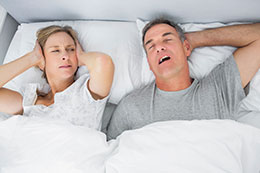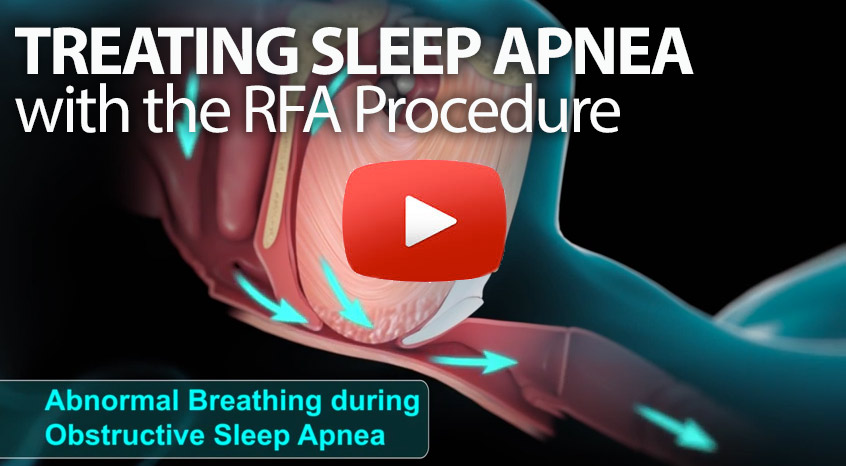What is the RDI (Respiratory Disturbance Index)?
 This is a commonly utilized index specifying the degree of apnea and is calculated based on a sleep study. The RDI cannot be calculated in the office setting, nor can it be predicted by a physician.
This is a commonly utilized index specifying the degree of apnea and is calculated based on a sleep study. The RDI cannot be calculated in the office setting, nor can it be predicted by a physician.
An overnight sleep study, termed a polysomnogram is the gold standard test to determine whether one has apnea, and the RDI is a numeric index which helps to define the degree of the apnea.
In essence, your RDI is:
- The number of abnormal breathing events per hour of sleep.
- RDI is calculated as the number of apnea events/hour plus the number of hypopnea events/hour plus the number of respiratory-effort related arousals (RERAs) per hour of sleep.
- An Apnea event is a complete cessation of airflow or obstruction lasting 10 seconds or longer.
- An Hypopnea, is a partial apnea event, defined as a 30% or greater reduction in airflow (compared to baseline), and a 3% or greater reduction in Oxygen saturation (a drop in the oxygen level) during a 10 second event.
- A RERA is an abnormal breathing event which does not meet the criteria of an Apnea or an Hypopnea, but is an “arousal” event associated with a respiratory effort as noted by EEG (electroencephalogram) during the sleep study. An EEG determines the stages of sleep, and the “arousal” is noted by EEG. The patient is generally not cognizant of being awake.
What are the key RDI numbers for me to know?
- Normal sleep study: RDI < 5 events/hour
- Mild apnea: RDI 5-15 events/hour
- Moderate apnea: RDI between 15-30 events/hour
- Severe apnea: RDI > 30 events/hour
In general, the degree of day time sleepiness correlates with the degree of apnea. That is, the more severe the apnea, the more symptomatic is the individual with respect to day time fatigue and sleepiness.
About Us
If you or someone you know is in need of a better night’s sleep, contact us for a no obligation consultation. We are the sleep specialists at Chevy Chase ENT located in the Virginia, Maryland, and Washington D.C. metro area dealing with sleep apnea and sleep-related problems. We can help diagnose your condition, recommend whether a sleep study would be beneficial, and offer you a variety of treatment options including CPAP, Radio Frequency Ablation (RFA) and more.

